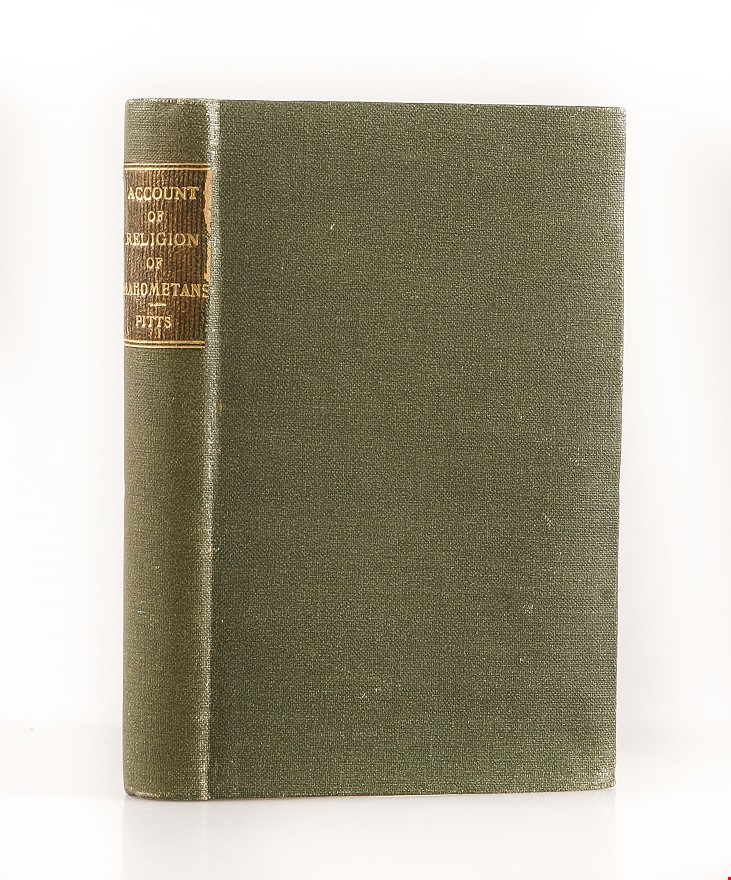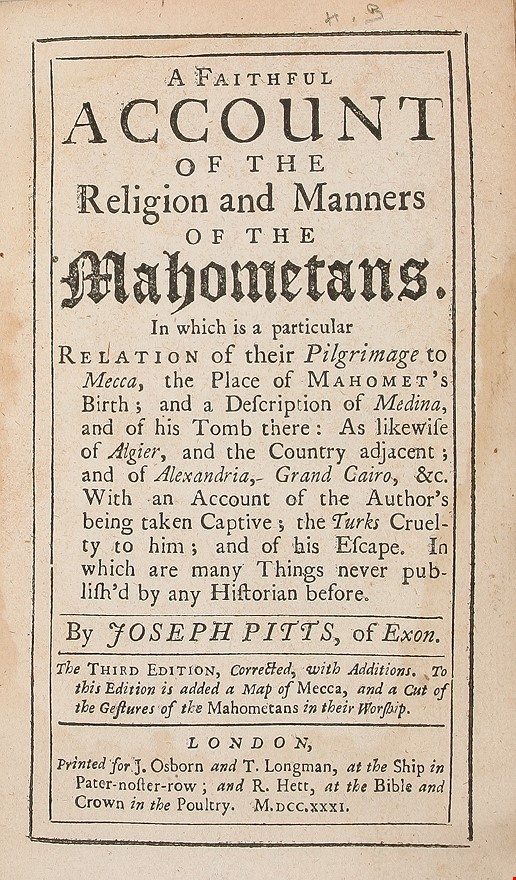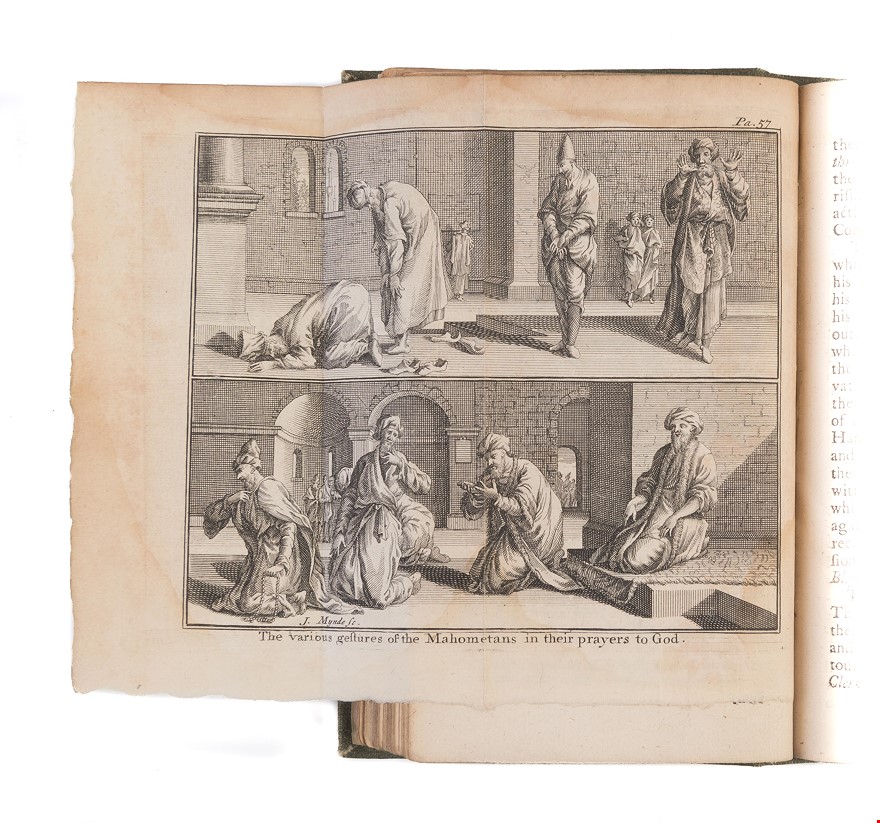A Faithful Account of the Religion and manners of the Mahometans. In which is a particular relation of their pilgrimage to Mecca, the place of Mahomet's birth, and a Description of Medina, and of his Tomb there: As likewise of Algier, and the Country adjacent; and of Alexandria, Grand Cairo &c. With an account of the Author's being taken captive; the Turks Cruelty to him, and of his escape.
PITTS Joseph (1731.)
£1600.00
Available to view at our Curzon Street shop.
The First Englishman to Visit Mecca
Third edition, corrected with additions. With two engraved folding plates (one of these described on the title page as ‘a Map of Mecca’ but in fact constituting a panoramic view and plan of al-Masjid al-Haram). 12mo. Twentieth-century green cloth, label with gilt lettering to spine, interior pages a little browned and damp-stained, some damp-staining to the folding plan. xxiv, 260, 4ads pp. London, Printed for J. Osborn and T. Longman and R. Hett,
The first illustrated and best edition, with a folding plate showing Muslims at prayer and a beautiful plan of the interior of al-Masjid al-Haram.
The two earlier editions were both printed in Pitts's home town of Exeter. In the preface the author explains: "I was very unwilling to reprint my book; but I have been informed, that there hath been great demmand[sic] for it (especially in London) and that it is the best account of the mahometan religion... several have been urgent with me to have it printed at London... upon this I endeavoured to recollect some things which had slipt[sic] me in the first edition". Paul Auchterlonie, in his book on Pitts, highlights the differences between the editions: "Besides improving and re-arranging the text, Pitts has added almost ten percent more material to the third edition of his book." (Joseph Pitts: an English Slave in 17th-Century Algiers and Mecca, Arabian Publishing, 2012).
Pitts, who was captured by Barbary pirates, was the second European and the first Englishman to visit Mecca, which he did quite legally as a pilgrim having converted to Islam (he was forced to apostatise) while the slave of an Algerine merchant. He gives a valuable, if somewhat prejudiced, picture of the Middle East in which he includes an account of coffee. Richard Burton, over one hundred years later, considered Pitts’s travels of sufficient worth for extensive quotation in his Pilgrimage.
Macro, 1816; not in Atabey.
Stock Code: 198033






